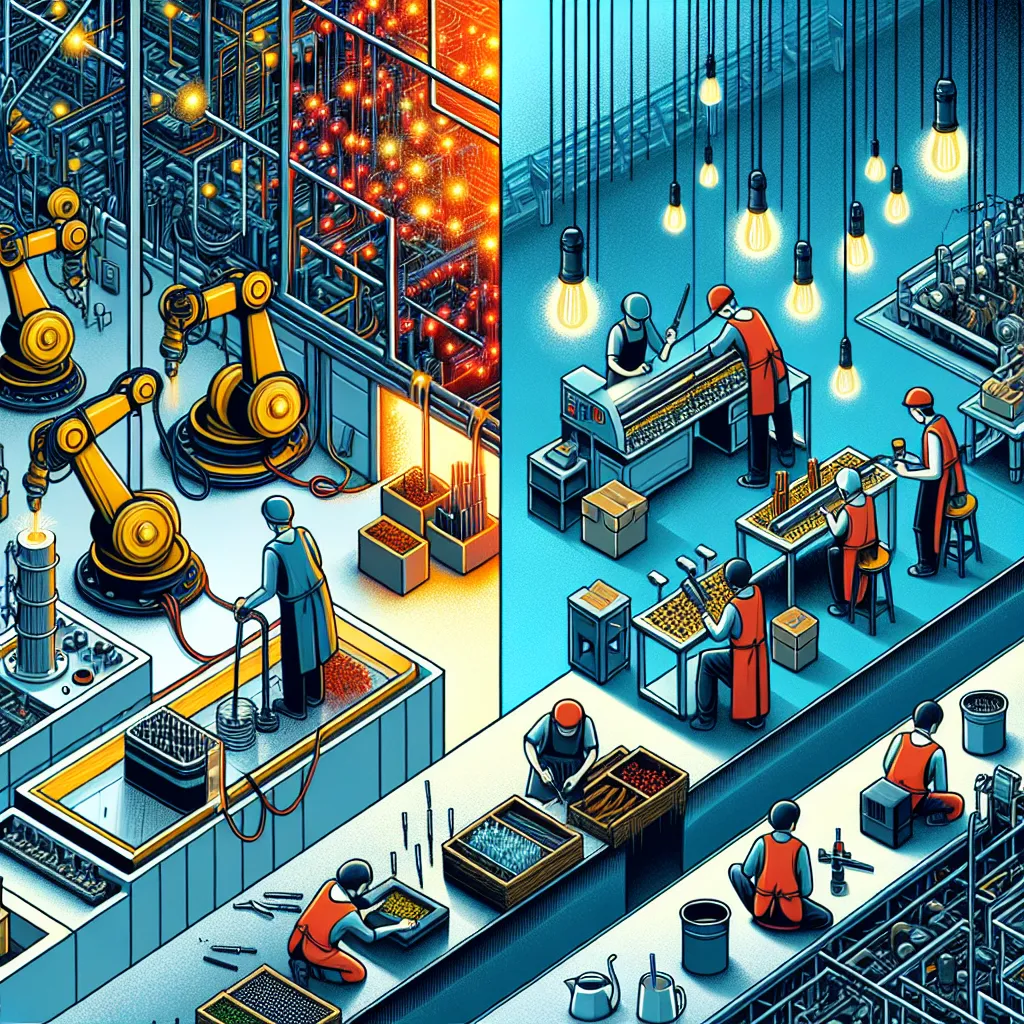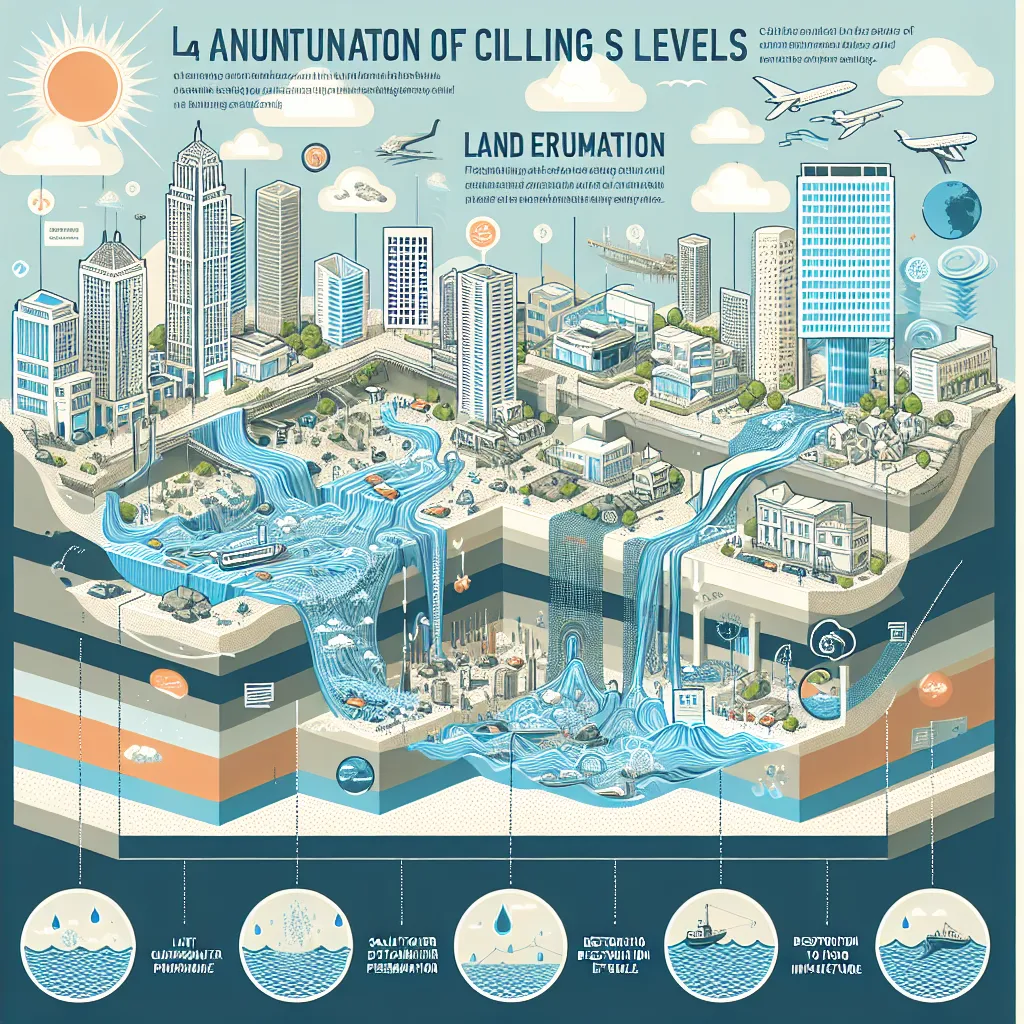The topic of managing the impact of technology on traditional industries is increasingly relevant in today’s rapidly evolving technological landscape. This theme has appeared in various forms in past IELTS exams and is likely to continue being a popular subject for future tests. Its significance lies in the need for societies to balance technological advancement with the preservation of traditional sectors. Let’s examine a specific question related to this topic and provide sample essays for different band scores.
Nội dung bài viết
 Technology Impact on Traditional Industries
Technology Impact on Traditional Industries
Analyzing the Question
Some people think that traditional industries (e.g., farming, manufacturing) are being negatively affected by new technology. Others believe that technology brings more benefits than drawbacks to these industries. Discuss both views and give your own opinion.
This question requires candidates to:
- Discuss the negative impacts of technology on traditional industries
- Explore the benefits technology brings to these industries
- Provide a personal opinion on the overall impact
It’s crucial to address all parts of the question and provide a balanced argument before stating your own view.
Sample Essay for Band 8-9
Technology’s impact on traditional industries like farming and manufacturing is a complex issue with both positive and negative aspects. While some argue that new technologies are detrimental to these sectors, others contend that the benefits outweigh the drawbacks. In my opinion, although there are challenges, the advantages of technological integration in traditional industries are more significant.
Those who view technology as a threat to traditional industries have valid concerns. The introduction of automation and artificial intelligence has led to job losses in many sectors, particularly in manufacturing. For instance, robots have replaced human workers on assembly lines, leading to unemployment and economic hardship for many individuals. Furthermore, small-scale farmers may struggle to compete with large, technologically advanced agricultural corporations, potentially leading to the loss of traditional farming practices and local knowledge.
However, the benefits of technology in these industries are substantial and cannot be overlooked. In agriculture, precision farming techniques using GPS, drones, and IoT devices have significantly increased crop yields while reducing water usage and pesticide application. This not only improves efficiency but also promotes more sustainable farming practices. In manufacturing, advanced technologies have enhanced product quality, reduced waste, and improved worker safety. For example, 3D printing has revolutionized prototyping and small-scale production, allowing for greater customization and reduced material waste.
Moreover, technology has opened up new markets and opportunities for traditional industries. E-commerce platforms have enabled small-scale producers to reach global markets, while blockchain technology is improving supply chain transparency and traceability. These advancements can help traditional industries adapt and thrive in the modern economy.
In my view, while the challenges posed by technology are real and should be addressed, the overall impact on traditional industries is positive. The key lies in managing this transition effectively. Governments and industry leaders should focus on retraining programs to help workers adapt to new technologies. Additionally, policies that support small-scale producers in adopting new technologies can help preserve traditional practices while improving competitiveness.
In conclusion, although technology presents challenges for traditional industries, its benefits in terms of efficiency, sustainability, and market access are more significant. The future of these sectors lies not in resisting technological change, but in embracing it thoughtfully and managing its implementation to ensure inclusive growth and preservation of valuable traditional knowledge.
(Word count: 377)
Sample Essay for Band 6-7
Technology has greatly changed traditional industries like farming and manufacturing. Some people think this change is bad, while others see it as mostly good. I believe that technology brings more benefits than problems to these industries.
On the negative side, technology can cause job losses. Many workers in factories have been replaced by machines, which can do the work faster and without breaks. This has led to unemployment in some areas. Also, small farmers might find it hard to compete with big farms that use expensive new technology.
However, there are many good things about technology in these industries. In farming, new tools like GPS and drones help farmers grow more food with less water and fewer chemicals. This is good for the environment and helps produce more food for people. In factories, machines can make products more quickly and with fewer mistakes. This means better quality products for customers.
Technology also helps traditional industries in other ways. For example, the internet allows small farmers and manufacturers to sell their products to people all over the world. This gives them more customers and can help their businesses grow.
In my opinion, while there are some problems with technology in traditional industries, the good things are more important. To help with the problems, governments should help workers learn new skills so they can use new technologies. They should also help small businesses get access to new technologies so they can compete better.
To sum up, I think technology brings more benefits than drawbacks to traditional industries. While we need to be careful about some negative effects, overall technology helps these industries become more efficient and successful in the modern world.
(Word count: 281)
Key Points to Remember When Writing
-
Structure: Both essays follow a clear structure – introduction, body paragraphs discussing both views, personal opinion, and conclusion. This organization is crucial for achieving a high band score.
-
Vocabulary: The Band 8-9 essay uses more sophisticated vocabulary and phrases, such as “precision farming techniques,” “economic hardship,” and “supply chain transparency.” The Band 6-7 essay uses simpler language but still maintains clarity.
-
Grammar: The higher band essay demonstrates a wider range of grammatical structures, including complex sentences and passive voice. The Band 6-7 essay uses simpler sentence structures but still maintains grammatical accuracy.
-
Coherence and Cohesion: Both essays use linking words and phrases to connect ideas, but the Band 8-9 essay does this more effectively, creating a smoother flow between paragraphs and ideas.
-
Task Response: Both essays address all parts of the question, but the Band 8-9 essay provides more detailed examples and a more nuanced discussion of the topic.
Important Vocabulary to Remember
- Automation (noun) /ˌɔː.təˈmeɪ.ʃən/ – the use of machines and computers to do work that was previously done by people
- Artificial Intelligence (AI) (noun) /ˌɑː.tɪ.fɪʃ.əl ɪnˈtel.ɪ.dʒəns/ – the study of how to make computers do intelligent things that humans can do
- Precision farming (noun phrase) /prɪˈsɪʒ.ən ˈfɑː.mɪŋ/ – a farming management concept using digital techniques to monitor and optimize agricultural production processes
- Sustainability (noun) /səˌsteɪ.nəˈbɪl.ə.ti/ – the quality of being able to continue over a period of time while causing little or no damage to the environment
- Blockchain (noun) /ˈblɒk.tʃeɪn/ – a system used to make a digital record of all the occasions a cryptocurrency is bought or sold, across many computers so that the record cannot be changed or falsified
- Supply chain (noun) /səˈplaɪ tʃeɪn/ – the system of organizations, people, activities, information, and resources involved in supplying a product or service to a consumer
- Traceability (noun) /ˌtreɪ.səˈbɪl.ə.ti/ – the ability to track or trace something, especially in manufacturing and food production
- Retraining (noun) /ˌriːˈtreɪ.nɪŋ/ – the process of learning new skills so that you can do a different job, or of teaching someone new skills
- Competitiveness (noun) /kəmˈpet.ə.tɪv.nəs/ – the ability of a company, country, or product to compete with others
- Adaptation (noun) /ˌæd.æpˈteɪ.ʃən/ – the process of changing to suit different conditions
Conclusion
The impact of technology on traditional industries is a complex and evolving topic that is likely to remain relevant in IELTS Writing Task 2. To excel in writing about this subject, focus on providing balanced arguments, using specific examples, and demonstrating a good command of relevant vocabulary. Practice writing essays on related topics such as:
- The role of government in supporting traditional industries in the digital age
- The importance of preserving traditional skills in a technology-driven world
- The impact of e-commerce on local businesses and traditional retail
Remember to structure your essays clearly, use a range of vocabulary and grammatical structures, and always address all parts of the question. Feel free to practice writing an essay on this topic and share it in the comments section for feedback and discussion.


